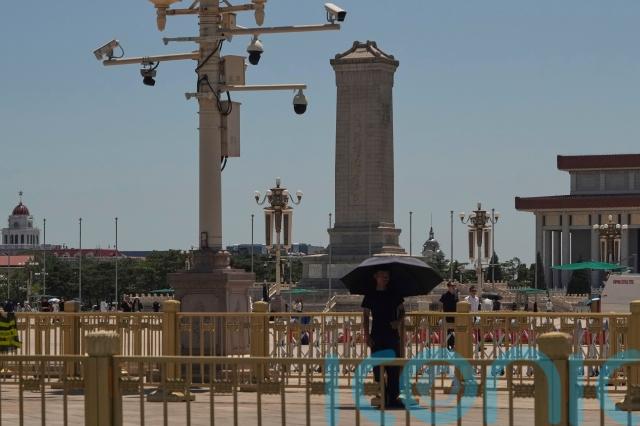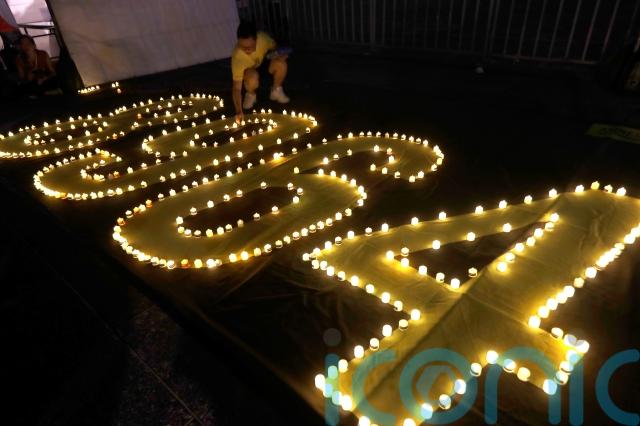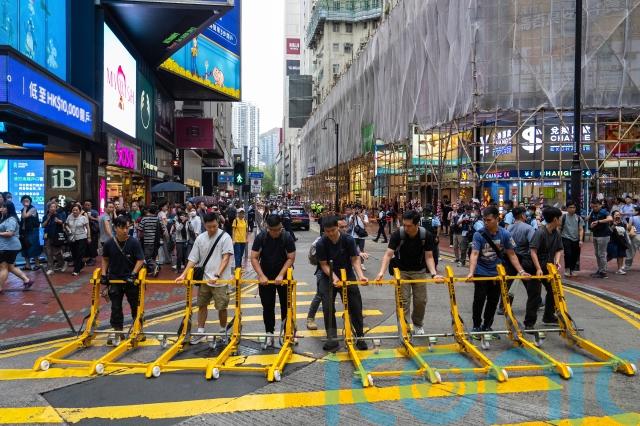
The 36th anniversary of a bloody crackdown that ended pro-democracy protests in China passed like any other weekday.
Security was tight on Wednesday around Beijing’s Tiananmen Square, where weeks of student-led protests shook the party in 1989.
Under then-leader Deng Xiaoping, the military was sent in to end the protest on the night of June 3-4. Using live ammunition, soldiers forced their way through crowds on the streets that tried to block them from reaching the square.
Hundreds and possibly thousands of people were killed, including dozens of soldiers.

The ruling Communist Party has tried, with some success, to erase what it calls the “political turmoil” of 1989 from the collective memory. It bans any public commemoration or mention of the June 4 crackdown, scrubbing references from the internet.
In recent years, that ban has been extended to Hong Kong, where a once-massive annual candlelight vigil is no longer permitted.
It is only in Taiwan, the self-governing island that is claimed by China but runs its own affairs, that large June 4 gatherings can still take place.
University students occupied Tiananmen Square in the spring of 1989. Their calls for freedoms divided the party leadership. The decision to send in the troops marked a decisive turning point in the evolution of modern China, keeping the party firmly in control as it loosened economic restrictions.

Chinese officials have said the country’s rapid economic development since then proves the decisions made at the time were correct.
“On the political turmoil that happened in the late 1980s, the Chinese government has already reached a clear conclusion,” Chinese Foreign Ministry spokesperson Lin Jian said on Wednesday.
He added that China would continue along its current path of what it calls “socialism with Chinese characteristics”.
Tiananmen Mothers, a group formed by relatives of the victims, made an annual online appeal to the government. Signed by 108 members, it called for an independent investigation into what happened on June 4, 1989, including a list of all who died.
The group also demanded compensation for the families and a legal case against those responsible for the deaths.
The British and German Embassies in Beijing posted videos commemorating the anniversary on Weibo, a Chinese social media platform, but they were later taken down. The Canadian and German Embassies displayed images of a single lit candle on large screens facing the main street.

In Hong Kong, a carnival showcasing Chinese food and products was held in Victoria Park, where tens of thousands of people used to gather in the evening for a candlelight vigil to mark the anniversary.
Hong Kong authorities first shut down the vigil during the Covid-19 pandemic and arrested the organisers in 2021. The moves were part of a broader crackdown on dissent following monthslong anti-government protests in 2019 that turned violent and paralysed parts of the city.
Police were out in force to try to prevent any protest.
Jailed vigil organiser Chow Hang-tung said she would go on a 36-hour hunger strike to remember the events of the day.
The British and Canadian consulates posted social media messages about not forgetting June 4. Hong Kong was a British colony until 1997. The American consulate posted a message from US Secretary of State Marco Rubio on its website.
“The CCP actively tries to censor the facts,” Mr Rubio said, referring to China’s Communist Party. “But the world will never forget.”
Taiwan’s President Lai Ching-te used the anniversary to position the island he leads on the frontline of defending democracy against authoritarianism. In a Facebook post, he drew a distinction between Taiwan’s multiparty democracy and China’s one-party rule.
“Authoritarian governments often choose to remain silent and forget about history, while democratic societies choose to preserve the truth and refuse to forget those who have contributed to the ideals of human rights and the dreams they embrace,” Mr Lai wrote.
Taiwan transitioned from authoritarianism to democracy in a process that began in the late 1980s. It relies on support principally from the US, along with other democratic partners, to deter China from an invasion.
The Communist Party says it favours peaceful reunification but does not renounce the use of force.
A commemoration and candlelight vigil remembering June 4 was planned for Wednesday evening.
Subscribe or register today to discover more from DonegalLive.ie
Buy the e-paper of the Donegal Democrat, Donegal People's Press, Donegal Post and Inish Times here for instant access to Donegal's premier news titles.
Keep up with the latest news from Donegal with our daily newsletter featuring the most important stories of the day delivered to your inbox every evening at 5pm.